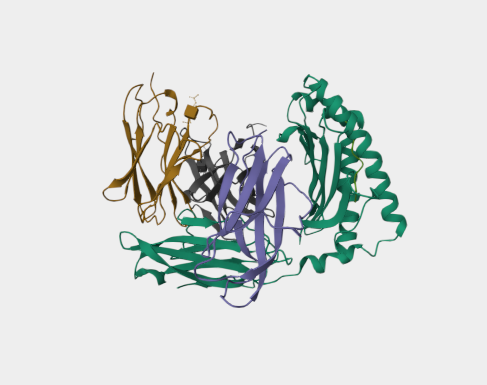Key features and details | |
Cat. No. | MABL-1125 |
Name | Anti-CD8 alpha/Lyt-2 mAbs |
Clone No. | AFD- YTS 169.4 |
From | Recombinant Antibody |
Isotype | Engineer antibody |
Application | Depletion, in vivo, FC, IHC, IHC-Fr |
Species Reactivity | Mouse |
Basic Information | |
Specificity | This antibody recognises the murine CD8 cell surface antigen expressed by a subset of T lymphocytes. |
Alternative Name | Leu2; CD8; CD8A; CD8a molecule; CD8a antigen; Leu2 T-lymphocyte antigen; Lyt-2; Lyt2OKT8; p32T-cell antigen Leu2; T-cell antigen; T cell co-receptor; T-cell surface glycoprotein CD8 alpha chain; T-cell surface glycoprotein Lyt-2; T8 T-cell antigen |
UniProt | P01731 |
Immunogen | Murine CD8 (Lyt-2). |
Application Notes | The antibody has been shown to show depleting activity in vivo. Mice have two alleles for CD8, Lyt2.1, and Lyt2.2, which are restricted to certain mouse strains. Lyt2.1, for example, is expressed in the mouse strains CBA, AKR, C3H, and DBA, whereas Lyt2.2 is expressed in the mouse strains BALB/c and C57BL/6 (B/6). YTS 169.4 was originally raised against CBA mouse thymocytes. However, there are publications in which it has been used in C57BL/6 and BALB/c mice, wherein it was used specifically as a pan-reactive Lyt2 reagent (Tavaré et al., 2014; PMID: 24390540). |
Antibody First Published | Cobbold et al. Therapy with monoclonal antibodies by elimination of T-cell subsets in vivo Nature. 1984 Dec;312(5994):548-51. doi: 10.1038/312548a0 PMID:6150440 |
Note on publication | The original publication describes the generation of YTS 169.4 and demonstrates the efficacy of unmodified monoclonal antibodies for in vivo depletion of cells and their potential for selectively manipulating different aspects of the immune response. |
COA Information (For reference only, actual COA shall prevail) | |
Size | 100 μg Purified antibody. |
Concentration | 1 mg/ml. |
Purification | Protein A affinity purified |
Buffer | PBS with 0.02% Proclin 300. |
Concentration | 1 mg/ml. |
Storage Recommendation | Store at 4⁰C for up to 3 months. For longer storage, aliquot and store at - 20⁰C. |



